The great pivot: US women small business owners during COVID
A year after the first COVID-19 lockdowns began in the United States, Al Jazeera asked American women who own small businesses to reflect on the challenges and unexpected silver linings they’ve found.
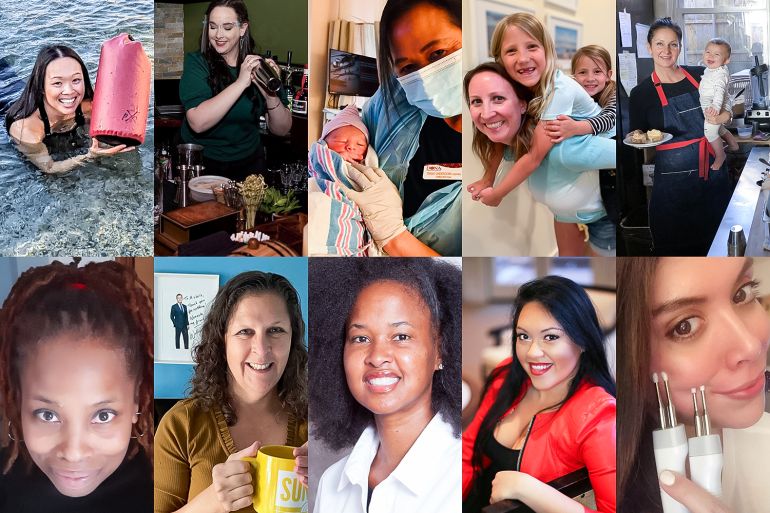
As the coronavirus spread across the globe, the emergency challenged the way the world thought about public health. For entrepreneurs who had built their businesses around promoting wellness, beauty and health, the COVID-19 crisis presented an unprecedented challenge: How do you care for people while staying six feet apart?
After United States President Donald Trump declared COVID-19 a national emergency, states passed stay-at-home orders that shuttered gyms, fitness studios and salons. Governors imposed restrictions on who could accompany a woman into the delivery room as she gave birth.
Keep reading
list of 3 itemsSmall firms: Little engines that could save the global economy
Willing to risk it: US entrepreneurs launch half a million firms
Small businesswomen who had focused on delivering in-person wellness services had to pivot to a world that existed only over Zoom. But they also found new markets and new interest in the services they were offering. Self-care took on a new meaning in a time of financial stress, and people stuck at home and anxious about the pandemic looked for ways to take care of their physical and mental health.
In the US, small businesses — defined as organisations with fewer than 500 employees — make up 99.9 percent of all firms (PDF). And more than 80 percent of US small businesses are run by a single entrepreneur without any other employees. That means that when times get tough, those small business owners face all the pressure alone. As gig workers, some struggled to navigate the US unemployment assistance programmes or found they didn’t qualify for government relief.
A year after the US COVID-19 lockdowns began, Al Jazeera asked 10 small businesswomen to reflect on the challenges and unexpected silver linings they’ve found. We checked in on women who had shared their stories with us earlier on in the pandemic and opened up the question to new entrepreneurs, too. This is part two of their stories in their own words — with all of the grit, grace and uncertainty that comes with a year like this one. (Read part one here).
Dr Nekita Sullivan, 46, physical therapist and yoga teacher in South Carolina: ‘Many times, I have been overwhelmed with this struggle. I have cried more in the last year than I have in my entire life.’
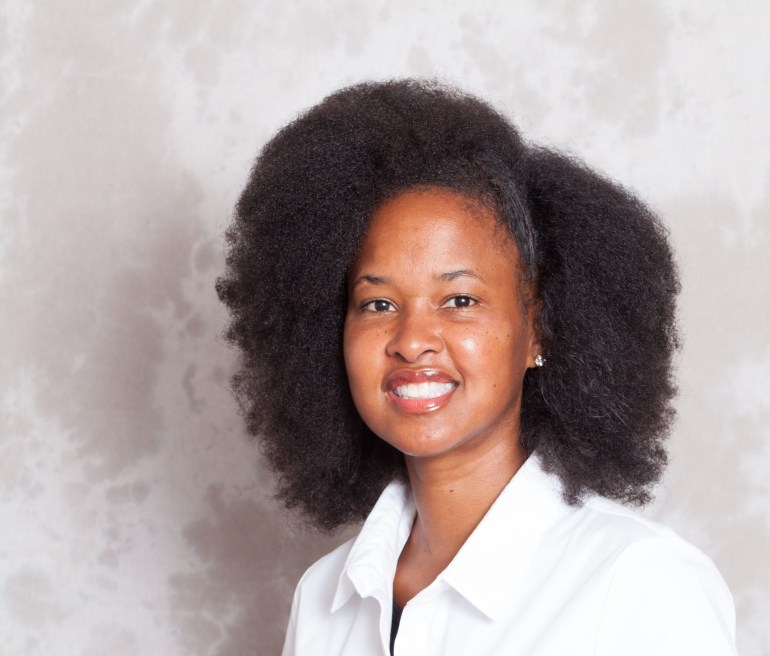
I opened Butterfly Eco Beauty Bar — a multiethnic, eco-friendly salon and spa — on Valentine’s Day in 2020 with eight employees. The pandemic closed my business the following month after my state issued a stay-at-home order. I was not able to finance my business with traditional financing. The banks declined to give me a loan due to the fact that they did not think my business would be profitable. Instead, I have used the majority of my retirement funds, savings, private investor funds, credit cards and credit lines to fund my business. Many times, I have been overwhelmed with this struggle. I have cried more in the last year than I have in my entire life.
So many obstacles occurred along the way that prevented me from reopening. I finally received some substantial funds from the CARES [Coronavirus Aid, Relief, and Economic Security] Act in the form of a minority small business grant that allowed me to reopen in January, almost one year after I first launched. I have reopened as Yoga Therapy Bar, and I am currently the sole provider.
I am having to start over again with a totally different business plan, different services and as the only employee. However, I am most grateful to have the opportunity and another chance. Minority and female business owners struggle to get off the ground and the pandemic has intensified that struggle. We are resilient and willing to do the work. What we need is a fair start with the proper resources. We WILL do the rest!
Rosalia Fiske, 36, aesthetician in New Jersey: ‘I experienced a new type of fear for the first time in my life — one based on helplessness, because what could anyone do in those early days?’
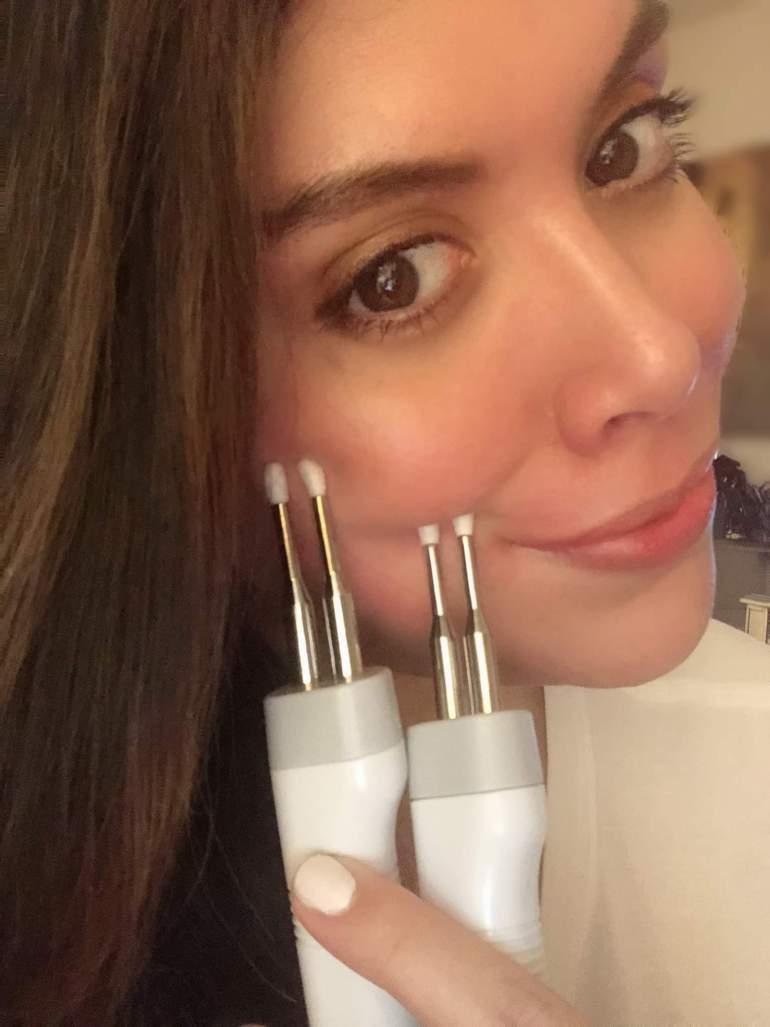
I voluntarily shut my facial and waxing business down one week before Governor Phil Murphy signed the executive order requiring New Jersey salons and spas to close because of COVID-19. I think the six degrees of separation in New Jersey are real, and the one COVID case in my city of Hoboken was enough for me to shut down.
I experienced a new type of fear for the first time in my life —one based on helplessness, because what could anyone do in those early days? I went into survival mode financially, spending only on food and bare necessities. I was grateful for my savings account and the refund I got from a cancelled trip to Mexico.
During the time between closing in March and our state reopening in June, licensed practitioners like me received not one update whatsoever about what to expect in terms of new safety protocols. Of all the licensed trades, we are among the most highly educated when it comes to practices around sanitation and blood-borne pathogens.
I am a one-woman operation, and that is a silver lining in and of itself. I sympathise with bigger spas and salons that struggled with relief for workers while paying their rent. Countless messages from clients checking up on me kept me sane and I am very happy that everyone I know for the most part is okay. So many people lost their lives or were completely uprooted by this.
I reached out to nurses who were highlighted in various New Jersey media stories and offered them “thank you” facials on the house. I learned so much from these women. I am very humbled and grateful for their hard work and happy to had relieved them from “maskne” and the skin dehydration that comes from hours wearing N95 masks. I have my second dose of the vaccine this week and am also grateful to receive it.
Trang Onderdonk, 51, birth and postpartum doula and childbirth educator in New Jersey: ‘To this day, I have yet to actually meet some of the clients that I formed amazing bonds with while working with them throughout their birth journeys.’
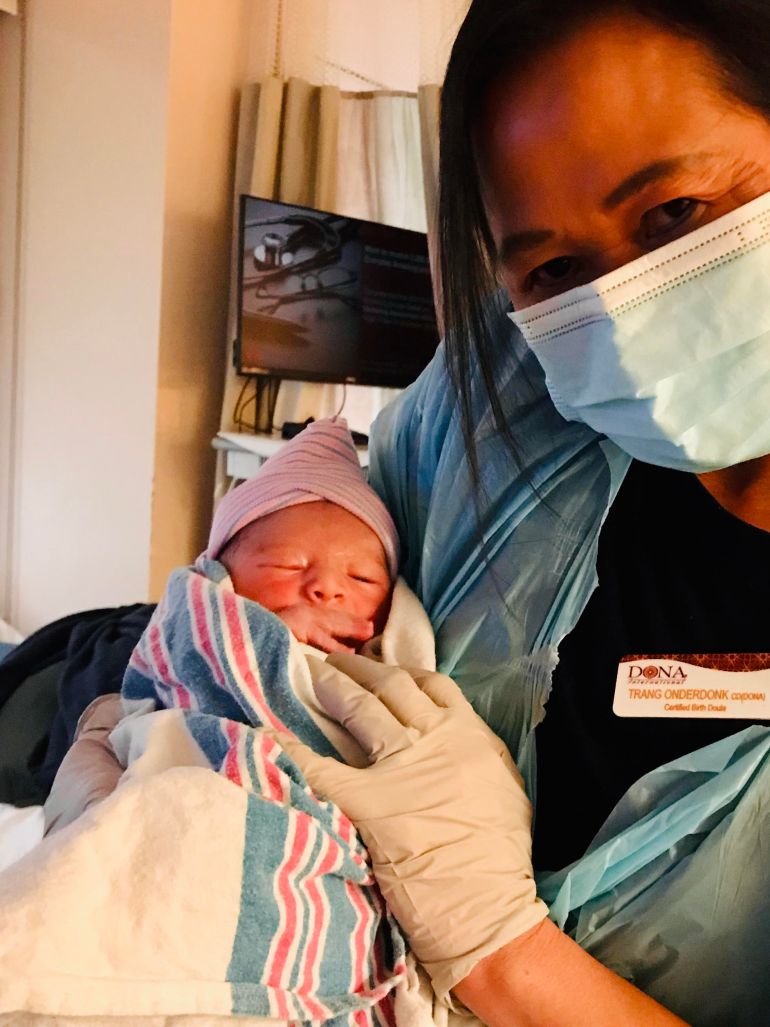
The pandemic has drastically changed the birth and postpartum doula services I offer through my business, Hoboken Doulas, as well as my childbirth and yoga classes. At the beginning of quarantine, there was a lot of uncertainty, so many people had to cancel. Due to the different hospital policies, many people have chosen to not have a doula with them in the delivery room.
I’ve had to “attend” many births through Zoom, and to this day, I have yet to actually meet some of the clients that I formed amazing bonds with while working with them throughout their birth journeys. I’ve had to decide how I best want to conduct my business in order to make sure that both my clients and I stay safe and healthy.
Because my business revolves around supporting women, I’ve witnessed the struggles of not only my own business but many of the businesses my clients have. Women have had to sacrifice support systems like doulas in order to ease the financial burden they are facing during the pandemic. My one silver lining would be my discovery of many technology resources I can use. It’s super convenient to quickly hop on Zoom whenever my clients need help with something, while previously I would just call them on my phone and I wouldn’t be able to see them.
Michelle Goitia, 52, yoga instructor and women’s support group facilitator in New Jersey: ‘Women continue to work through all the changes in their lives — including this pandemic.’
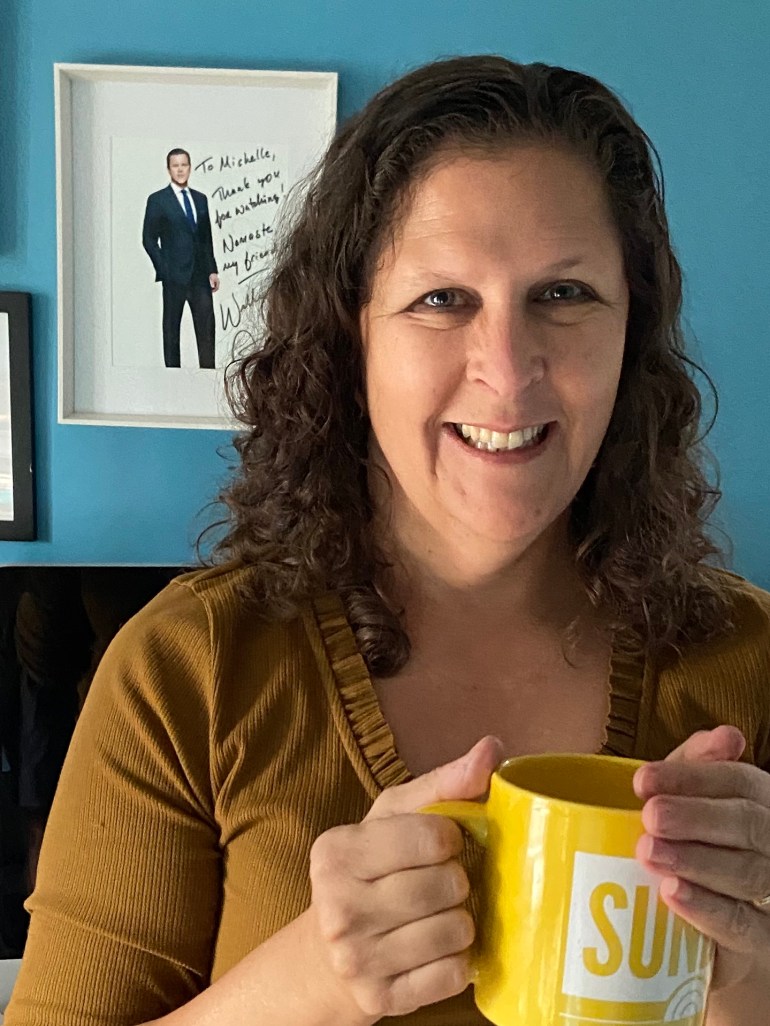
My business serves expectant and new mothers, and I offer something more unique than a regular exercise yoga class — I offer a community for moms as they navigate their challenges and joys. I’ve built that community over the past 12 years, and as a small business owner, I have come up against roadblocks, but I had never experienced anything like this.
It started with smaller classes as COVID-19 cases started to make the news in the New York City area. Then, the week of the lockdown, I got word one by one from the studios where I teach that they would be closing. In the span of a week, I lost all of my business.
Like everyone else, I thought it would only be a few weeks that we were out of work, so I didn’t file for unemployment benefits right away. When I realised it was going to be longer, I filed but didn’t receive benefits for another three months. The state unemployment system simply couldn’t handle all of the people using it, and they had to reinvent the wheel for those of us who were gig workers.
I also had to move online and reinvent my business, which was based on the woman-to-woman connection of in-person classes and support groups. Spending so much time on social media and seeing what everyone else is doing often brought up feelings of imposter syndrome. My online classes are smaller than my in-person ones were, which means my income still takes a hit. I made the difficult decision not to change my pricing, so other classes are cheaper than mine.
A silver lining was that as a mother of older children who are 22 and 17, I was not impacted by homeschooling but rather got time back with my kids. My daughter graduated online from college and moved home to become our family’s resident chef. My son is completing his senior year in high school remotely, so I get to have lunch with him every day.
During the summer, I started going through menopause: it felt like COVID’s cruel joke on me. Compounded by the hormonal funk and the uncertainty of the pandemic, my business took a back seat as I just tried to survive and function. But just like birth and motherhood and now menopause, women continue to work through all the changes in their lives — including this pandemic.
This is part two of a two-part series on small businesswomen in the United States one year after COVID-19 lockdowns began there. Click here to read part one.